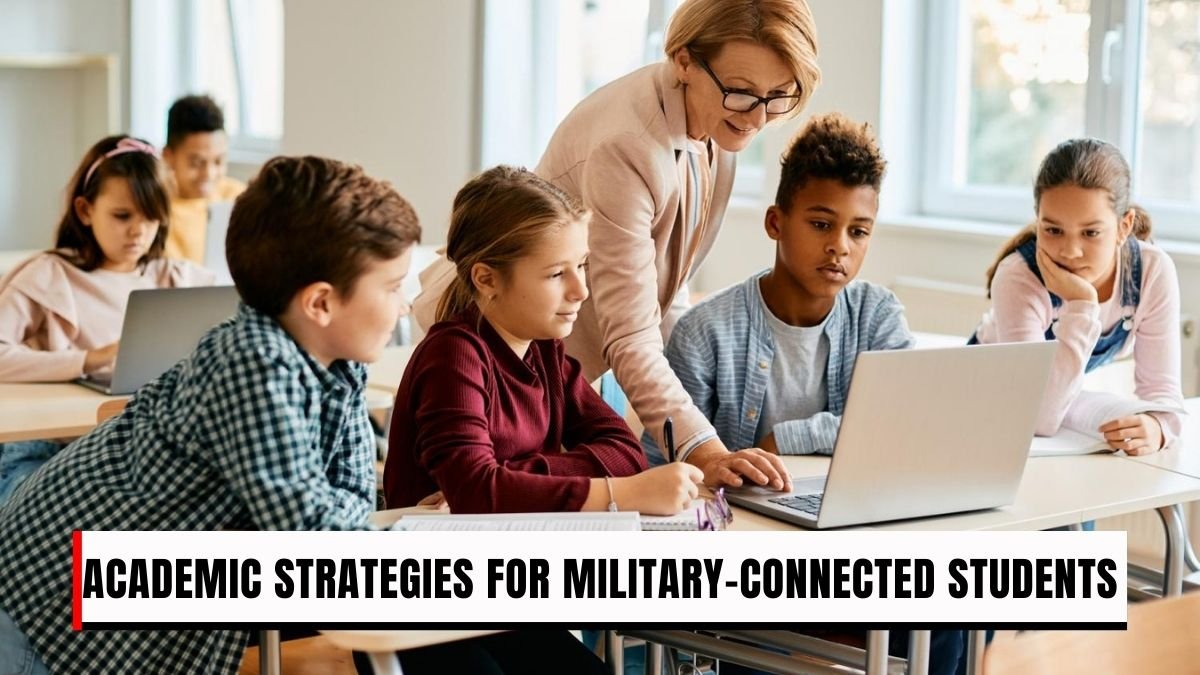Academic Strategies for Military-Connected Students: The month of April is considered extremely special for military families around the world. The month is celebrated to honor the perseverance, courage and sacrifice of students who are part of families involved in military service. These students face many unique challenges during their studies, as their families’ lives often involve relocations, long-distance deployments, and constant change. Especially in the K-12 education system, these children face situations like changing schools frequently, adjusting to the new environment and adopting different education standards.
In such a situation, it is important that society, government and educational institutions together provide such support to these students so that they not only succeed in their studies but also become mentally and emotionally strong. In this direction, the US Department of Defense, state governments and various educational institutions are working together so that these students can get quality education in every situation.
Efforts related to the education of military children
The challenges faced by students belonging to military families are completely different from those of ordinary children. Frequent transfers disrupt their studies and they have to repeatedly adjust to new teachers, new peers and new education structures. Many times they have to face difficulties in admission process, subject selection and graduation criteria due to different rules of different states.
In view of these challenges, the Military Interstate Children’s Compact Commission (MIC3) was established in the US. This is an agreement in which various states and territories of America agreed together that children belonging to military families would be provided more convenience in changing schools.
MIC3 is designed to ensure that students are not subjected to cumbersome processes when transferring into a new school and that their education is not derailed by the variation in education standards and graduation requirements in different states. The program is meant to ease the transition process among the students and offer them more support so that they can get a good education anywhere in the world.
Purple Star Schools: Special Support for Military Families
Purple Star Schools is another valuable program to enhance the education of military children. These are schools that operate programs with the needs of military families in mind. In such schools students are not only provided with academic assistance but provided with special instructions to help them adjust to their transfer and new school.
Non-profit organizations such as Military Child Education Coalition are striving to bring a positive change to the education system by promoting these schools. Purple Star Schools offer transition support, academic support, and counseling services in collaboration with them.
According to a report by Clearinghouse of Military Family Readiness at Penn State University, it was found that some states differed in the criteria and requirements imposed on Purple Star Schools. The report proposed that states ought to adopt portions of common elements, including specifically assigned personnel, transition programmes and pages devoted to military families. This might help military students get better support.
State Initiatives in 2024
Several US states have launched new legislative efforts to support students from military families in 2024. These efforts aim to facilitate students’ education and provide them with a safe educational environment.
Delaware introduced H.B. 310, which proposes to include the Space Force in the legislative framework. The move is in line with the changing nature of the US military. New Hampshire’s H.B. 1382 focuses on adapting special education support to the needs of military students. Arizona’s H.B. 2246 and Colorado’s H.B. H.B. 24-1076 propose to establish the Purple Star Schools program in their states to help military children overcome the challenges of transition and education.
Kentucky’s H.B. 469 defines the terms “military student” and “Purple Star School” and assigns oversight responsibility to the Kentucky Commission on Military Affairs. Maryland’s S.B. 707 expands the definition of military student to include the Space Force and other states’ National Guard. Florida’s H.B. 1285 amends existing provisions to establish the “Purple Star School District Program” and to establish special transfer degrees for military students. Minnesota’s S.F. 4561/H.F. 4451 requires states to begin the application process for Purple Star Schools by July 2026.
These initiatives clearly show that various states in the US are taking concrete steps towards providing more opportunities and facilities to military families, understanding their difficulties.
Honoring the contribution of military families
As the month of April reaches its last stage, it reminds us that the struggle of students from military families is not ordinary. These students not only struggle with their studies but also bear the burden of their family’s sacrifice and service on their shoulders. Their lives are full of constant changes, yet they strive to move forward in the field of education.
With the support of the state and central governments, as well as the joint efforts of various non-profit organizations and schools, it can be ensured that these students overcome every challenge and achieve success in academic and personal life.
Conclusion
The story of students from military families is not limited to education alone. It is a story of courage, adaptation and determination. MIC3, Purple Star Schools and initiatives of various states are proof that the society is making a difference in the lives of students. The Indian Army is recognising their contribution and is ready to provide them all possible support.
This occasion of April forces us to think how valuable the sacrifices of these students and their families are for us. This is not just a matter of policies and laws, but a social responsibility. If the government, educational institutions and the community work together in this direction, then students from military families will not only overcome their challenges but will also become a strong pillar for the society and the country in the times to come.
